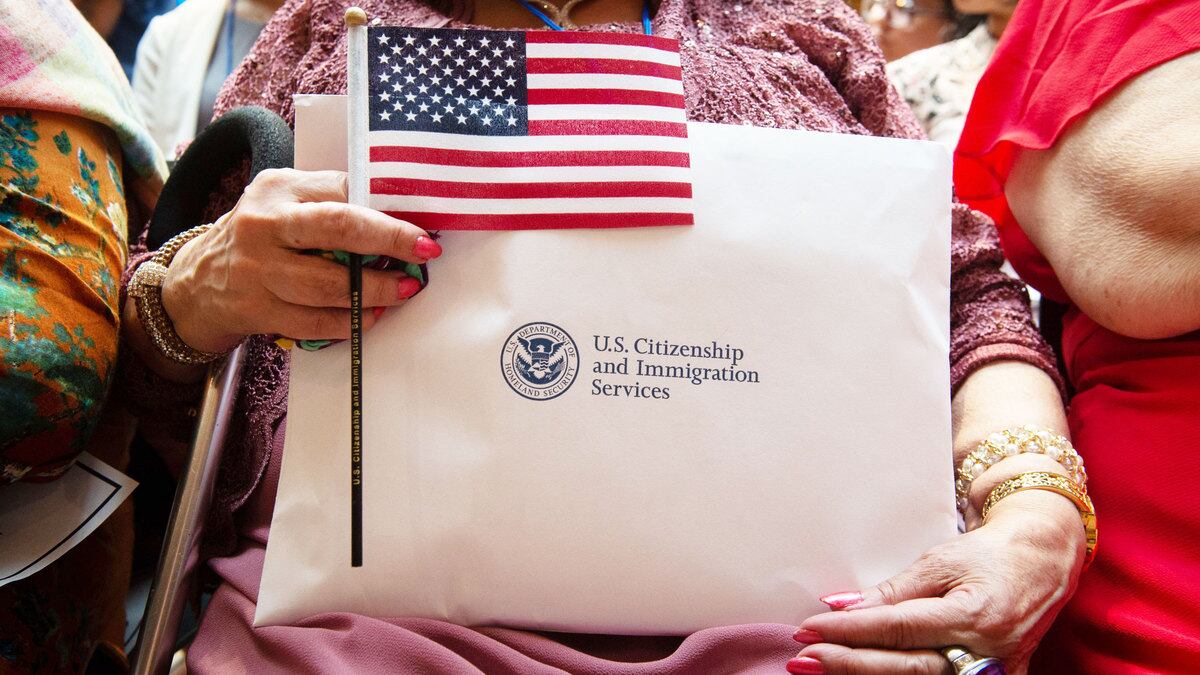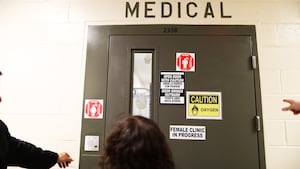When Donald Trump finally made good on his long-standing threats to send in the feds to police American cities in the midst of protests about policing, it wasn’t the Army or some new phantom force but Customs and Border Patrol. To quote a fairly popular leftist chant: La migra, la policía, la misma porquería.
Agents have been snatching Black Lives Matter protesters off of the streets of Portland, a thousand miles from the nearest border in a scene that may be coming soon to a city near you. If you’re surprised that CBP, whom we’ve relied on to weed out so-called “bad hombres” from crossing our borders, is now being weaponized against “legal” and “law-abiding” residents, you haven’t been paying attention.
It’s no coincidence that the same forces responsible for brutalizing Black communities, instituting inherently racist measures like stop and frisk, and disproportionately incarcerating people of color are working in tandem with the forces that shoot tear gas at asylum-seekers at the border, throw families into ice boxes and violently raid homes leaving kids without parents. What’s overdue is a closer alignment of the Black and immigrant communities that have been on the receiving end of those forces.
One reason that the convergence of the two repressive policing systems—one that’s supposed to operate at our borders and the other inside of them—has become so much more blatant is that Congress has failed for a generation to enact any significant reform to our immigration system. The last major piece of immigration legislation to be passed through Congress was back in 1986, and as this broken status quo has staggered on American lawmakers have also more or less given up on overseeing the executive agencies tasked with “controlling” immigration in our country. All along, millions of deportations have been carried out by prior administrations, and the Trump administration continues to chip away at immigrants’ rights—most recently with an effort to cut funding and suppress representation in localities heavily populated with immigrants.
For a generation, the immigration debate has been framed to emphasize homeland security and distinguish between “desirable” and “undesirable” migrants based almost solely on their economic potential. That perspective, devoid of dignity or empathy, has justified indefinite detainment even in the face of a deadly pandemic, the cruel separation of families, and arbitrary deportations that have sometimes resulted in death.
It’s possible to break this stalemate, and penetrate the general ignorance and apathy about the U.S. immigration system among those who haven’t had to navigate it. The success of the Black Lives Matter movement in dramatically shifting Americans’ views on race in just a few years shows how centering a group’s experience can move popular opinion and the lawmakers who in turn respond to it.
Americans are now viewing the race “problem” in the United States from a more progressive vantage point, looking at how we’ve failed to ensure the proper flow of resources in low-income communities of color and have simultaneously been complicit in maintaining racist institutions. We’re finally getting serious about stopping police violence, defunding police, abolishing the prison industrial system, and ending the school-to-prison pipeline.
Alongside these demands, immigration activists have been calling to stop deportations, defund and abolish ICE, and end forced labor for detainees–often to deaf ears. Now we’ve seen first hand how those agencies have been deployed against citizens, undercutting basic rights like due process central to American democracy.
Centering Black voices and exposing the damage of slavery and white supremacy ingrained in our every day institutions has revealed to many Americans how Black people have been systematically oppressed in our country. In a sense, victims of the transatlantic slave system were the first forcibly “migrated” workforce who were then forced to perform free labor. After the abolition of slavery, Black people were criminalized, disenfranchised and similarly forced into slave-like labor through mass incarceration.
Plantation owners and factory owners then turned to migrant labor to satisfy their desire for cheap, exploitable labor and the cycle began anew. Migrants in the last half-century have become vastly over-criminalized and over-incarcerated, eventually forced to labor in private prisons even if their only wrongdoing was simply being in the United States. Being undocumented is not a crime in itself but rather a civil infraction, yet ICE continues to detain migrants indefinitely, as though they are criminals. Or worse than criminals, in a sense, since the Constitution doesn’t allow indefinite sentences for accused or convicted criminals.
As an over-policed population, when migrants do possess a criminal record, they are judged and punished more harshly for crimes. What would be considered a misdemeanor conviction such as petty theft or failure to appear in court could be classified as an “aggravated felony” under immigration law and lead to deportation–a permanent and cruel consequence for an innocuous crime. In addition, crimes added to the “aggravated felony” list can retroactively make a person deportable, even if that person has already served time for their crime. For others, simple traffic violations like unpaid parking tickets can ultimately lead to deportation through detainer requests. This atmosphere of criminalization is, of course, even worse for Black migrants who must also navigate being perceived by law enforcement as a threat because of their race.
Since 1986, Congress has only added to the list of “aggravated felonies” but obfuscated on passing any real relief to immigrants. As the deportation machine grows stronger in the United States, these same tools of the state have now been weaponized against the so-called “good” (codeword for possibly white, but definitely rich and educated) immigrants to our country, from H-1B holders to international students.
Not only does this shatter the binary between “good” and “bad” immigrants, on which we have made the foundation of our immigration laws (since we can’t make them about being white anymore… see: Immigration Act of 1965), but now we see it being utilized against our own very citizens who are fighting for equality and accountability for Black lives.
Protecting the rights of immigrants is a moral imperative, but it’s also a practical one to limit the powers of federal policing agencies that this administration or a future one could turn on any of us.







